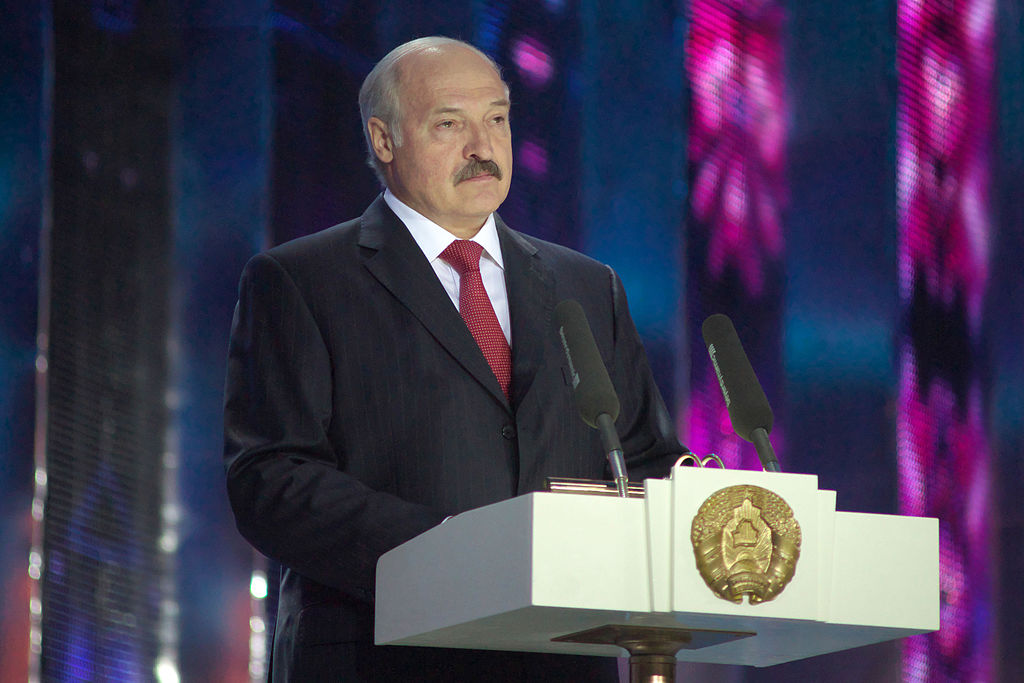Russia and the West – partners and rivals at the same time – seem to have the same short-term policy regarding Belarus. According to Belarusian President Alexander Lukashenko, the Kremlin and some Western countries are trying to destabilize the East European nation ahead of the presidential election scheduled for August 9. What could be the long-term impact?
Russian President Vladimir Putin’s spokesman, Dmitry Peskov, recently said that Moscow is not planning to interfere in Belarusian domestic affairs in any way, which could be interpreted as Russia’s tacit support of Lukashenko. However, there are rumors that the Kremlin is indirectly backing some opposition candidates in order to weaken Lukashenko’s position. For instance, Valery Tsepkalo, a former diplomat who served as Belarusian Ambassador to the United States, fled to Russia after he has been denied registration as a presidential candidate. He has reportedly gone to Moscow with his children, fearing for his safety. Also, Viktor Babariko, who was the most serious of Lukashenko’s challengers, is believed to have close ties with the Kremlin as he spent decades working as the CEO of the local unit of Russia’s Gazprombank. He has previously been denied registration by the election commission, despite collecting more than 400,000 signatures to do so, and is currently detained over alleged corruption schemes and money laundering. In addition to that, popular Belarusian vlogger Syarhey Tsikhanouski is linked with Russian liberal, pro-West opposition and Alexey Navalny. His critics, on the other hand, accuse him of working for the Kremlin, and allegedly supporting Russian nationalism. In any case, Tsikhanouski has been detained and banned from running, which is why his wife Svetlana had to get involved in the election campaign. Unlike all other anti-Lukashenko candidates, she been successfully registered and is now the only challenger to the Belarusian leader.
Although the opposition activists and some foreign pundits claim that she has high chances against Lukashenko in the case of a second round, in reality the current Belarusian President is expected to get more than 50 percent of the votes in the first round of the election, which means that he will become “the clear victor” on August 9. Since Lukashenko firmly controls the election process, he simply cannot lose. The authorities in Belarus, as well as in many other countries, have a mechanism to rig the election and prevent the opposition from taking part in the counting of the vote. After all, Soviet leader Joseph Stalin apparently once said that “those who vote decide nothing, and those who count the vote decide everything.” Tsikhanouskaya and her team will be unlikely to be allowed to count votes and she does not even have access to the mainstream media. Also, the vast majority of pensioners and rural population still prefers Lukashenko’s stability and the status quo, rather than uncertain times that can come to Belarus once the 66 year old leader is ousted. However, the problem for Belarusians is that, even after Lukashenko’s victory, things will unlikely be the same as they were before the COVID-19 pandemic.
In January, a couple of months before the coronavirus crisis hit Europe, Russia halted oil supplies to refineries in Belarus after Moscow and Minsk failed to renegotiate oil prices for 2021. Ever since, Belarus started diversifying its energy import by purchasing oil from countries such as Saudi Arabia, Norway and the United States. This month, however, the Belarusian and Russian Prime Ministers, Roman Golovchenko and Mikhail Mishustin, signed agreements on Russia’s oil supply to Belarus, as well as the construction of a nuclear power plant, although it is still unknown what the crude price will be for Belarus. It is also worth noting that Mishustin recently said that Russia and Belarus will be able to discuss the mechanism of pricing of energy resources once Moscow and Minsk adopt a single tax code. In other words, the Kremlin keeps pushing Belarus to deepen integration into a Russia – Belarus Union State in exchange for energy discounts.
So far, Lukashenko has managed to successfully balance between Russia and the West and also to avoid losing the country’s sovereignty by allowing Moscow to have a control over the Union State fiscal and monetary policy. However, since Russia does not seem to be willing to keep providing cheap energy to its only European ally, Lukashenko will likely have to make some concessions to the Kremlin. Even though some Western analysts speculate that Russia aims to eventually annex Belarus, such a scenario is very improbable. It is quite questionable what Russia’s endgame in Belarus is. From the Kremlin’s perspective, any annexation would mean feeding an additional nine million people. Given that Belarus does not have any significant natural resources, it is very unlikely that Moscow will ever try to incorporate this territory into the Russian Federation. Instead, it will likely keep using it as a reliable transit country for natural gas and oil supplies to Western Europe. At the same time, the Russian elite could try to find a way to make an additional profit out of such a relationship, either by privatizing some Belarusian state-owned companies, or by forcing Lukashenko to hand over parts of the country’s financial sovereignty to Moscow.
The West, on the other hand, seems to have a similar agenda. Even though Belarusian opposition leaders promise their voters that Belarus will become “a normal European country” once Lukashenko has gone, there is no guarantee that the former Soviet republic will ever join the European Union. The country could, however, serve as a cheap labor for Western corporations, which is the model that has already been implemented throughout Eastern Europe. In any case, over the next five years, during Lukashenko’s sixth term in the office, the Belarusian leader will likely have to make concessions to both Russia and the West, or he will be faced with an economic crisis he won’t have an answer to.
Image credit: Serge Serebro, Vitebsk Popular News

